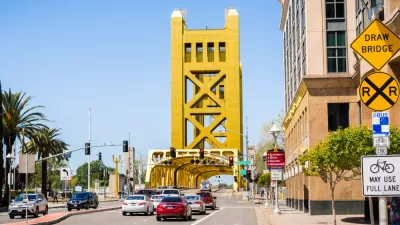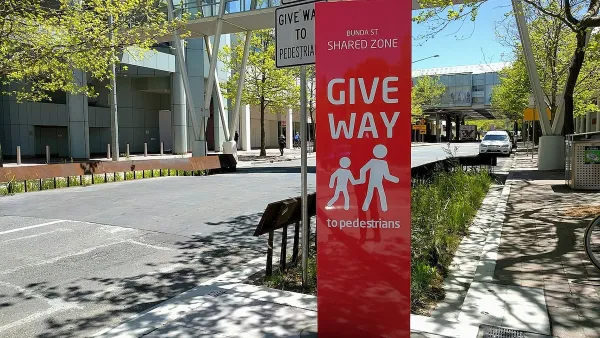An argument for the value of including planners in industries far beyond city planning.

In a piece in The Handbuilt City, Nat M. Zorach argues that companies of all kinds could benefit from hiring urban planners. “More companies, especially public utilities and any firm dealing with infrastructure of any kind, should hire city planners on their staff. It’s a huge value-add,” Zorach writes.
“The core of my pitch is that city planners understand interrelated, complex technical and non-technical systems, in a way that the average professional does not.” As Zorach explains, “Cities, like corporations, are not islands, nor are they oases. They operate in a complex regulatory environment, much like a corporation does, dealing with municipal regulations as well as state and federal law. Similar to how corporations can raise funding through everything ranging from IPOs to crowdfunding to promotion sales, cities also source capital from different places– like use fees, taxation districts, federal grants, state grants.” Planners can bring together diverse skills and help devise solutions that more siloed professionals may not think of.
Lastly, “Planners might not always be the best communicators, but even the worst communicators in planning generally understand how to connect with the general public better than the average corporate sector player. This is valuable in building consensus, obtaining buy-in, or facilitating broad collaboration.” Experience with community outreach and public meetings can go a long way in the corporate world, which is largely disconnected from the average consumer and citizen.
FULL STORY: Blueprint for Value: Why Companies Need City Planners on Their Payroll

Planetizen Federal Action Tracker
A weekly monitor of how Trump’s orders and actions are impacting planners and planning in America.

Chicago’s Ghost Rails
Just beneath the surface of the modern city lie the remnants of its expansive early 20th-century streetcar system.

San Antonio and Austin are Fusing Into one Massive Megaregion
The region spanning the two central Texas cities is growing fast, posing challenges for local infrastructure and water supplies.

Since Zion's Shuttles Went Electric “The Smog is Gone”
Visitors to Zion National Park can enjoy the canyon via the nation’s first fully electric park shuttle system.

Trump Distributing DOT Safety Funds at 1/10 Rate of Biden
Funds for Safe Streets and other transportation safety and equity programs are being held up by administrative reviews and conflicts with the Trump administration’s priorities.

German Cities Subsidize Taxis for Women Amid Wave of Violence
Free or low-cost taxi rides can help women navigate cities more safely, but critics say the programs don't address the root causes of violence against women.
Urban Design for Planners 1: Software Tools
This six-course series explores essential urban design concepts using open source software and equips planners with the tools they need to participate fully in the urban design process.
Planning for Universal Design
Learn the tools for implementing Universal Design in planning regulations.
planning NEXT
Appalachian Highlands Housing Partners
Mpact (founded as Rail~Volution)
City of Camden Redevelopment Agency
City of Astoria
City of Portland
City of Laramie





























